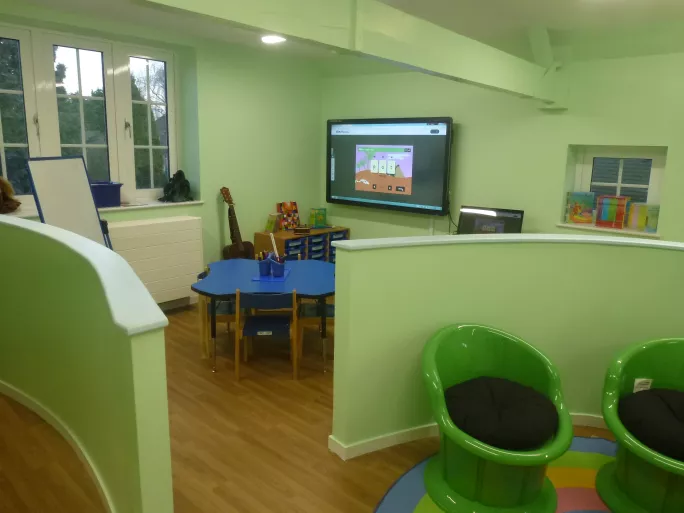
- Home
- ‘In primaries, we must intervene before ‘exclusion’ is mentioned’
‘In primaries, we must intervene before ‘exclusion’ is mentioned’

How often have you heard or read the word “exclusion” recently? I’d hazard a guess that it’s a lot more than last year. I’d also guess that more so than in previous years, you’ve said (or thought): “I’ve never come across a child like this before...” The problem is, as Professor Barry Carpenter said recently, that we have 21st-century children and a 20th-century education system. It’s one that doesn’t recognise, or cater, for the children that we’ve “never come across before”.
Bad behaviour is born out of frustration, anxiety, anger and shattered self-esteem. Predictably, this then results in temporary or permanent exclusion.
There are so many teachers who are crying out for help. But unfortunately, the boxes that need to be ticked to get it don’t seem to relate to the problems displayed by the children, or the children don’t have the cognitive skills to be able to answer the questions.
So what provision is out there for these children in primary education?
I specify primary, because it’s here where problems first manifest, it’s here where children are asked questions that challenge both their neurodevelopmental milestones as well as the neurological milestones.
Children are far away from their comfort zones and if they also have social, emotional or mental health concerns, then it can be like a ticking time bomb ready to explode. Providing help at this stage could possibly avoid the problems escalating and could save the children from getting on a rollercoaster ride to later exclusions in primary and secondary.
Fixed term and permanent exclusions in secondary school mean they could be placed in a PRU. What’s next, prison?
Well, an IPPR report Making the Difference from 2017, revealed that 63 per cent of prisoners reported being temporarily excluded, and 43 per cent had been permanently excluded.
The report goes on to say that the cost of exclusion is estimated at £370,000 per young person in lifetime education, benefits, healthcare and criminal justice costs. They then use the official figure of 6,685 children permanently excluded from school in 2016 and estimate that that then amounts to £2.21 billion for the cohort.
Is alternative provision simply there to get children ready for their potential stretch in prison, a taste of solitary confinement, isolation?
So very little is being done to help these kids. We need to intervene as soon as possible. Ideally, before the word “exclusion” is even mentioned.
There are roughly 60 primary schools listed, with around 26,028 pupils in the borough in which I work. We have one KS1 provision centre and one KS2.
I’m lead of the security, trust, empathy, potential, success (STEPS) programme at the KS1 personal education training school (PETS) behaviour support unit at Sudbury Primary School in Brent.
At STEPS, we try to reintegrate pupils to their original school or help to find an appropriate alternative setting.
It’s terrifying to think that some 5 and 6-year-old children are facing fixed-term exclusion, or in some cases permanent exclusion.
Many of the children we work with have suffered some form of trauma - physical and or mental. They may have been subjected to or witnessed abuse and in some cases may have been born with impairment due to fetal alcohol syndrome (FAS), drug abuse in utero as well as premature birth.
The one thing that these children all seem to share is the fact that learning is not the first thing on their minds when they come to school. They need to feel safe and cared for before they can be effective learners. They’re disruptive and, in many cases, dangerous to others and themselves. They’re not learning and they are affecting other children’s learning.
So far, in just under two years, we have been successful for nine potentially excluded or already excluded children.
How do we do it?

The above picture shows part of the STEPS facility. It’s a bespoke design taking into account the children we support. There is limited visual interference, the colours are more pastel than primary, there is a small room for the children to “kick off” in with a punch bag and cushions as well as a separate space for art therapy, and we play quiet meditative music throughout the day.
Once the children are settled and ready they receive the appropriate curriculum teaching alongside their therapeutic interventions.
For a child to attend STEPS for the available days in an academic year it costs around £17,000 - a small price to pay if it avoids this child being excluded in the future, which as we already know, costs £370,000.
This week, I visited one school that has a child they would like to send to STEPS and I also received a call from a Sendco in another school with the same enquiry. It’s with deep regret that I had to tell them it’s not possible - we’re at full capacity.
As educators, it is our responsibility to ensure all children - including “those we have never seen before” - receive the education they deserve. Unfortunately those with the passion and drive to support this need financial support from the people with their fingers on the purse strings. At the moment, there are a handful of very committed and passionate people with very few resources providing alternative provision and preventing further exclusions.
The writing is on the wall, and to avoid these scenarios there needs to be a dramatic rethink concerning primary education provision to ensure that successful alternative provision is in place and available to all those children who need it.
Think of the potential cost, not just the financial, but the emotional one to pupils, parents and teachers, if this is not done.
Stan Cripps is the head of STEPS, at KS1 PETS, Sudbury Primary School
Register with Tes and you can read five free articles every month, plus you'll have access to our range of award-winning newsletters.
Keep reading for just £4.90 per month
You've reached your limit of free articles this month. Subscribe for £4.90 per month for three months and get:
- Unlimited access to all Tes magazine content
- Exclusive subscriber-only stories
- Award-winning email newsletters
You've reached your limit of free articles this month. Subscribe for £4.90 per month for three months and get:
- Unlimited access to all Tes magazine content
- Exclusive subscriber-only stories
- Award-winning email newsletters